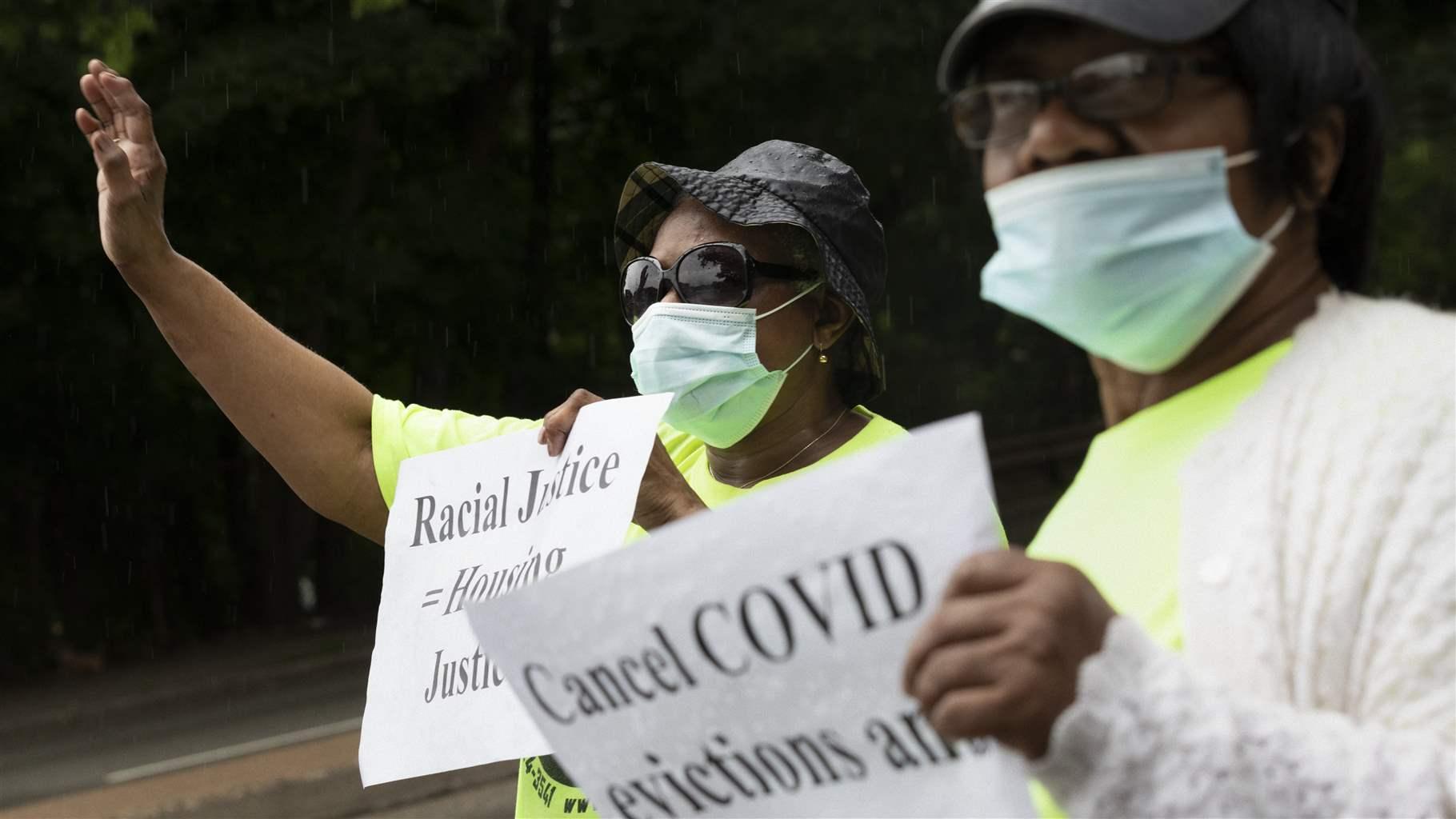
Despite CDC Moratorium, Private Equity Firms and Other Large Landlords Have Filed to Evict More Than 16,000 People In First Two Months Of 2021
March 3, 2021
Outsized Impact on Marginalized Communities
Private equity firms and other corporate landlords have filed to evict more than 16,000 people in the first two months of 2021 even with a nationwide eviction moratorium ordered by the Centers for Disease Control and Prevention, according to new data from The Private Equity Stakeholder Project. This has occurred despite the unprecedented challenges of the pandemic and devastating winter storms.
In fact, corporate landlords filed more than 850 eviction actions in Harris and Tarrant Counties in Texas on or after February 10th when Winter Storm Shirley hit the area. Nearly all of these cases are still pending.
Not surprisingly, these eviction filings are impacting communities of color the hardest. Clayton and DeKalb Counties in Georgia, which have majority Black populations, have seen some of the largest numbers of filings. Since Jan 1, 2021, the Private Equity Stakeholder Project has documented 1,038 eviction actions by corporate landlords in Clayton County and 2,535 eviction actions in DeKalb County.
The Private Equity Stakeholder Project has compiled a list of evictions in select counties in AZ, TX, NV, GA, FL, and TN, as well as the companies responsible.
Some of the worst offenders include Pretium Partners/ Front Yard Residential, S2 Capital, Western Wealth Capital, Mid-America Apartment Communities, Invitation Homes, and Oaktree Capital, which together are responsible for more than 1,600 eviction actions this year.
Private equity firms and other large landlords like Pretium Partners/ Front Yard Residential, S2 Capital, Mid-America Apartment Communities, Camden Property Trust, Prudential, American Landmark Apartments/ Electra America, Starwood Capital, and Madera Residential have filed to evict residents in Texas since the storm hit.
“Despite a ban from the CDC, private equity firms have been evicting people at an alarming rate — including in the middle of the devastating storms in Texas last month,” said Pilar Sorensen, who leads the Private Equity Stakeholder Project’s work on housing. “From coast-to-coast these firms have been skirting CDC regulations, disproportionately upending the lives of African American families, all so they can boost their profits in the middle of a pandemic.”
Even if renters are able to successfully file a CDC form to stop the eviction, the ACLU has documented how the impacts of an eviction order on a person’s rental history can be devastating, with particularly alarming impacts on marginalized communities. Research shows that eviction is also a catastrophe that extends far beyond the loss of a home. The mere existence of a prior eviction filing — whether successful or not — is enough to lock tenants out of housing opportunities for years to come.
Photo: Michael Dwyer/The Associated Press
